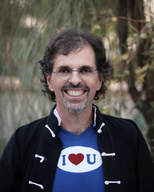 In their efforts to be taken seriously as scientists, my fellow psychologists impose strange restrictions on themselves and their field. For much of the last century, they were only allowed to study human behavior and not mental life, which was termed an “explanatory fiction.” When the cognitive revolution happened, suddenly psychologists gave themselves permission to study certain aspects of mental life, such as memory, reasoning, and perception. Yet other aspects are still off-limits to a certain extent because they make my colleagues uncomfortable. Intuition is one of those. As a creativity researcher, I am fascinated by intuition, which is inherently mysterious. Suddenly, we know more than we think we do, and that knowledge comes in unusual ways. Intuitive knowledge is not generated through our five senses, our memories of the past, or our ability to think and reason. There seems to be another source at play. Artists from every part of the world and every era in human history have described the experience of being guided by an unknown yet undeniable force. In his classic song, “Taxi,” Harry Chapin wrote, “There’s a wild man wizard hiding in me, illuminating my mind.” That is what intuition feels like. In Deep Creativity: Inside the Creative Mystery, I describe my personal journey into intuition and other aspects of the creative experience that most psychologists tend to ignore, such as passion, inspiration, and imagination. Like most experiences, intuition can best be understood from the inside. When I was writing Deep Creativity, I had moments when my fingers felt like they were moving themselves on the keyboard, and all I could do was sit back and marvel at the words that were appearing on the screen. This did not happen every time I sat down to write, but undoubtedly my most satisfying and productive writing days were that way. So, my first reaction to someone who denies the existence of intuition or tries to dismiss it as unconscious cognition is to laugh. I find it funny because I have been there and I know what it feels like. Either you have experienced intuition or you haven’t. This is not a matter of faith. The idea of unconscious cognition is that individuals can process information without having any awareness of having done so. Once the processing is complete, the answer pops into their awareness and suddenly they know something they didn’t know before, but they have no idea how that knowledge came to be. This explanation of intuition never felt right to me. So, in 1996, I began a research study that would challenge the notion of unconscious cognition. My Intuition in Pregnancy study has been cited in the mainstream media for two decades (see my Media Kit page for links to books and articles featuring this research) while being dismissed by my academic colleagues. In this study, I asked pregnant women to predict the sex of their unborn child. I chose this particular form of intuition because of how hard it would be to classify it as unconscious cognition. There is no known perceptual or reasoning process that could lead a mother to know the sex of her child, assuming she has not had a sonogram or other medical procedure. The folk mythology around pregnancy, which claims, for example, that a male fetus is positioned differently in the uterus relative to a female, appears to have no basis in fact. When I was doing this research, I focused on women whose predictions were based on an intuition, such as a dream or a “gut feeling.” I found that 70 percent of the women who had an intuition about the sex of their child were correct, as long as they did not have a strong preference for a girl or a boy. Such preferences tend to override intuition. So, how does a mother know the sex of her child? That is an intriguing question. All I can offer is a hypothesis, which I call “knowing by being.” For nine months, a mother shares her body with her child. In a very real sense, the child is a part of her. She knows that child as intimately as she does her own body. A mother knows the child developing inside her because she is one with that child. How we choose to explain intuition matters. Those who claim that intuition is nothing but unconscious cognition are underestimating and even misrepresenting this capacity. Psychologists do accept the idea that we have “inner speech,” but they tend to see it as a monologue with only one speaker. I see it as a dynamic conversation in which many voices are engaged. We may sometimes hear the voice of common sense, of fear and caution, of love and delight, and of those who have shaped us throughout our lives, such as our parents and teachers. I hear my grandparents’ wisdom expressing itself in me on a nearly daily basis. The Bible describes a “still small voice” that spoke to the prophets. I know this voice well; it speaks to me often. And it is unlike any other. The still small voice offers guidance and comfort. It points me in the directions that bring me the greatest fulfillment—and challenge. It is not always easy to listen to this voice; there are times when I would prefer to ignore it, for the sake of convenience and simplicity. It can be so subtle that I might be tempted to disregard it altogether. Yet, so very often, it steers me away from obstacles and danger. I have taught myself to discern this voice from all others, and to make the lines of communication as clear as possible. As with any other form of communication, the idea is to increase the signal-to-noise ratio. I have written extensively about that in all of my books because I think the ability to tune into our intuition is one of the most powerful resources at our disposal. Victims of violent crime often report afterwards that they had a feeling they were going into an unsafe or dangerous situation but they chose to ignore it. I see these types of situations in terms of a cost-benefit analysis. If that feeling is correct, the benefit is that you avoid tremendous harm and trauma. If the feeling is wrong, then the cost might be embarrassment or inconvenience. I would say to you that if you ever find yourself in a similar situation, and the benefit of tuning into a feeling of this type outweighs the cost—which is almost always the case—then the feeling deserves your attention The more deeply you explore intuition, the more it guides you. At first, it may manifest as a vague feeling. Then you might start to use it to get answers to simple “yes” or “no” questions. Eventually, you discover what a rich source of insight and wisdom it can be. Intuition is, in my mind, one of the most undervalued and misunderstood aspects of human experience.
0 Comments
Leave a Reply. |
I want to hear from you! Please share your questions and comments. And sign up for my newsletter, where I will pass along the insights, ideas, and inspiration that come my way.
Contact me:Archives
November 2023
|

 RSS Feed
RSS Feed
